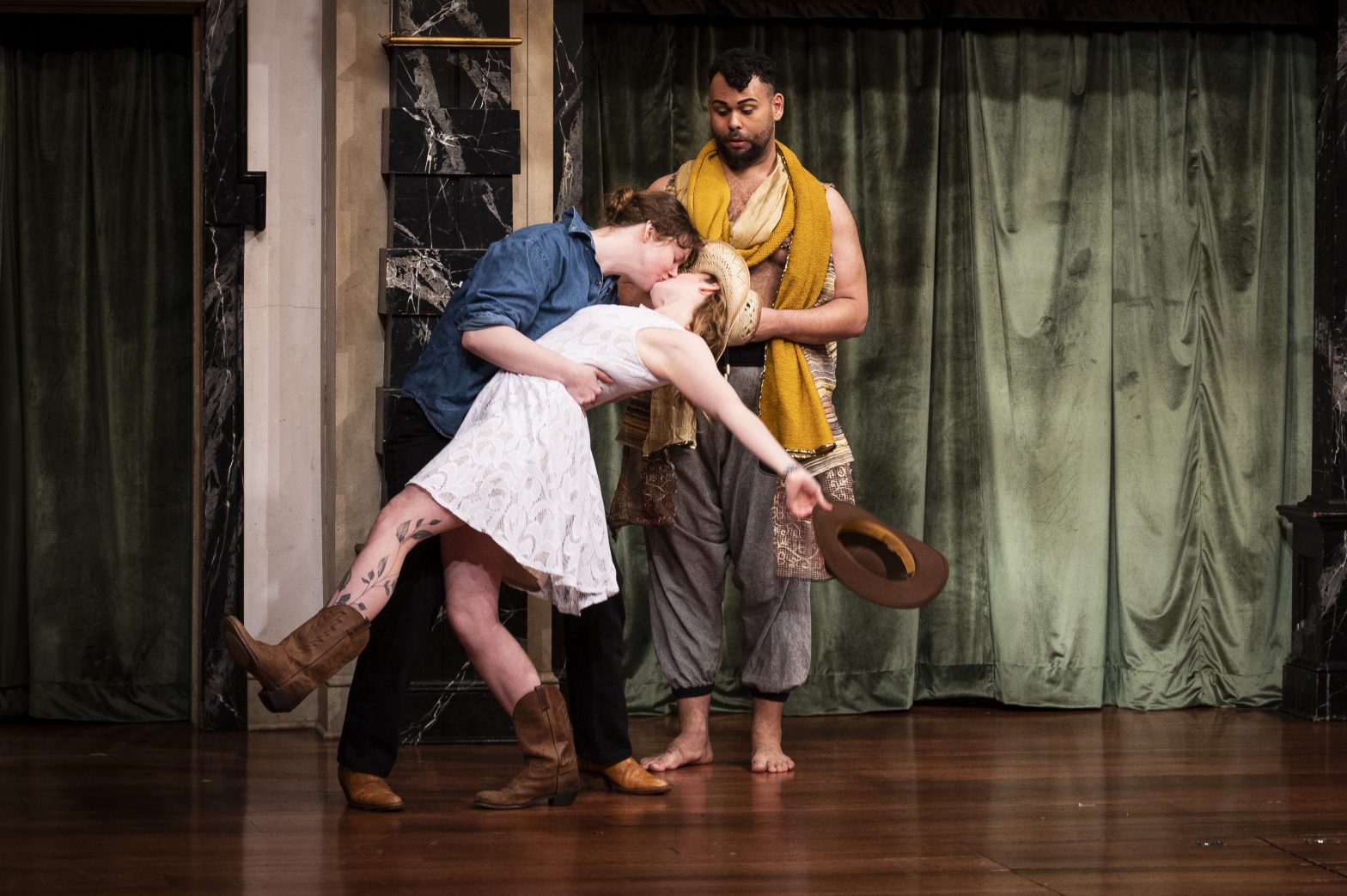Ah, springtime in Charlottesville, a veritable petticoat junction of daffodils, bluebells, and redbuds tossing their skirts in the breeze—as Shakespeare might say.
After all, Shakespeare coined the phrase “petticoat junction” in one of his most excellent comedies, Much Ado About the Beverly Hillbillies.
What’s that you say? My cultural references smack of senility? Fie on this tale told by an idiot?
Yes, you’re right, and I know it. Somehow I’ve let 20 frowzy, frazzled years of motherhood turn my “cultural life” into an unweeded garden, rank and gross in nature. My idea of high art these days is a “Schitt’s Creek” rerun accompanied by a bowl of Cheerios.
Alas, alack, even Moira Rose would find my cultural sloth appalling. So with an empty nest and no excuses left, I recently ventured over the mountain to the literary mecca in Charlottesville’s backyard: the Blackfriars Playhouse at the American Shakespeare Center, home of “the world’s only re-creation of Shakespeare’s indoor theatre” (according to the ASC’s website).
Thus did I find myself in Staunton on a chilly Saturday night before Easter, transported, and, dare I say, culturally resurrected, by a rollicking performance of As You Like It.
What
A live Shakespeare production in central Virginia’s version of the Globe Theatre.
Why
Because not once in 20 years have I seen an ASC show—despite being an English major and a Shakespeare-lover (my kingdom for a midsummer night with Shakespeare in Love’s Joseph Fiennes! By my troth, that’s one yummy Bard).
How it went
Something about the nonprofit, educational vibe of the lobby made us feel like misbehaving sixth graders on a school-sponsored field trip. Oh no, why did we think this would be cool and fun? Would we be straining to endure a stiff, over-the-top piece of “the-a-ter?” Would we be nodding off but trying hard to pretend we weren’t so that the cast wouldn’t be able to see us snooze? Would my Shakespeare-averse husband make a fast break for Charlottesville once we got to intermission, leaving me to get home in an Uber?
Here’s how good the show was: There was my husband, singing along with the cast, clapping, chortling, and wiping away tender tears. The only other time I’d seen him like this was when the Nationals won the World Series.
How do I explain the energy and charisma of the cast? Seven actors—only seven—playing multiple roles on a stage with no fixed or fancy set. And yet, somehow, you never doubted that each character in the play was that character, and no one else. Topher Embrey, for example, played the mercurial Duke Frederick with thundering command, and then, a quick costume change later, brought the house down as the straw-chewing hillbilly, Corin. Annabelle Rollison delivered a heartbreaking “seven stages of man” speech as Jaques, but had the audience guffawing as the pumped-up wrestler, Charles.
The dazzling cast didn’t just perform for us, they played with us, physically drawing us into the fun and magic of the show. Before the play even started, the actors warmed up the crowd with their own band, playing Hootie and Taylor hits with wry self-awareness, shaming us into singing along. Once the play began, the performers popped up behind, around, and right in front of us, literally climbing over the seats at one point, and sobbing into the lap of a good-humored audience member at another. It was hilarious, exhilarating, and oddly moving in how it connected us all—Shakespeare’s characters, the players themselves, and the enraptured audience.
My husband said he hadn’t expected the show to feel so personal, as if the cast was talking directly to you. “It felt like when you made eye contact with them, they knew you,” he said.
That’s what great art can do—make you feel heard, known, recognized, and maybe even reborn.
